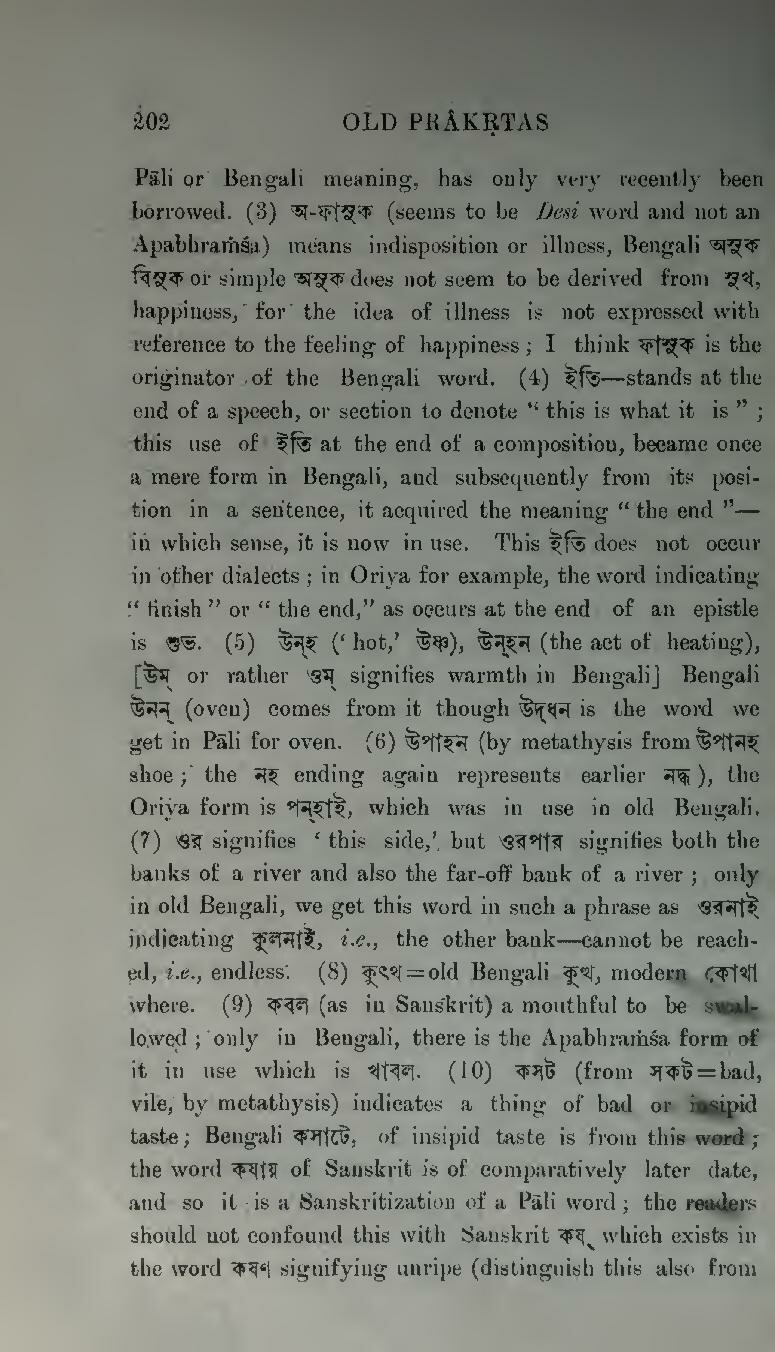Pāli or Bengali meaning, has only very recently been borrowed. (3) অ-ফাসুক (seems to be Desi word and not an Apabhraṁśa) means indisposition or illness, Bengali অসুক বিসুক or simple অসুক does not seem to be derived from সুখ, happiness, for the idea of illness is not expressed with reference to the feeling of happiness; I think ফাসুক is the originator of the Bengali word. (4) ইতি—stands at the end of a speech, or section to denote "this is what it is"; this use of ইতি at the end of a composition, became once a mere form in Bengali, and subsequently from its position in a sentence, it acquired the meaning "the end"—in which sense, it is now in use. This ইতি does not occur in other dialects; in Oriya for example, the word indicating "finish" or "the end," as occurs at the end of an epistle is শুভ. (5) উন্হ ('hot,' উষ্ণ), উন্হন (the act of heating), [উম্ or rather ওম্ signifies warmth in Bengali] Bengali উনন্ (oven) comes from it though উদ্ধন is the word we get in Pāli for oven. (6) উপাহন (by metathysis from উপানহ shoe; the নহ ending again represents earlier নদ্ধ), the Oriya form is পন্হাই, which was in use in old Bengali. (7) ওর signifies 'this side,' but ওরপার signifies both the banks of a river and also the far-off bank of a river; only in old Bengali, we get this word in such a phrase as ওরনাই indicating কুলনাই, i.e., the other bank—cannot be reached, i.e., endless. (8) কুৎথ = old Bengali কুত্থ, modern কোথা where. (9) কবল (as in Sanskrit) a mouthful to be swallowed; only in Bengali, there is the Apabhraṁśa form of it in use which is খাবল. (10) কসট (from সকট = bad, vile, by metathysis) indicates a thing of bad or insipid taste; Bengali কসাটে, of insipid taste is from this word; the word কষায় of Sanskrit is of comparatively later date, and so it is a Sanskritization of a Pāli word; the readers should not confound this with Sanskrit কষ্ which exists in the word কষণ signifying unripe (distinguish this also from
